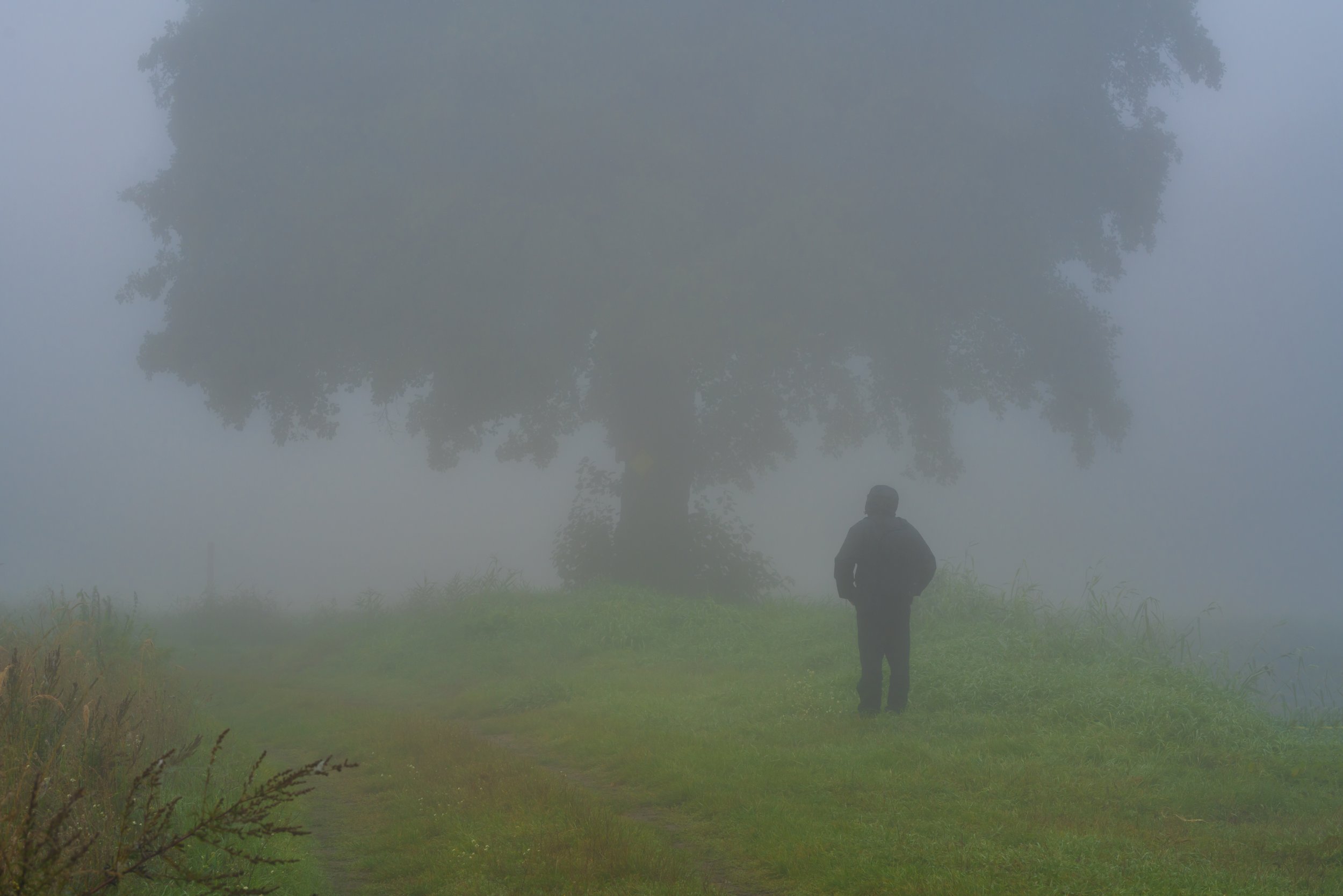“What I do know is that it can help to find the words to tell the truth of where you are now. If you can find the courage to name “here”—especially in the place you do not wish to be—it can help you be there. Instead of resenting another’s words of gladness and pain, it may be possible to hear it as simply another location. They are there and I am here/ At another point, we will be in different location, and everybody will pass by many locations in their life. The pain is only deepened when the location is resented, or even worse, unnamed.”
Trauma is disorienting and isolating. You often feel lost and alone. Which is perhaps why I have continually reached for the language of landscapes—nature—geography to describe my experience. I wanted a location. I wanted to feel solid ground under my feet. I wanted to be able to describe where I was so that maybe, just maybe, someone could find me. So that I could find myself.
Whenever I would try to talk to my therapist about my experience –to find words to describe my feelings—the image that first came to mind was the child’s game, “pin the tail on the donkey.” A game where you are blindfolded and holding a paper ‘tail’ in your hand. And you are spun around and around and then let go—dizzy—and unsure of your direction—and the task is to walk to the picture of the donkey on the wall and put the tail on in the right place. To make the donkey whole.
But that feeling of being spun around –unsure of my location or orientation—feeling wobbly and off-balance—that feeling is how I felt trying to talk about my experience of trauma or my feelings.
I often tried to solve the problem of my inner experience of ‘spun around’ the same way that one would try solving the problem in the actual game of ‘pin the tail on the donkey’—by pretending I was fine. In the game you do your best to walk confidently and sure-footedly—toward the donkey—even when you aren’t sure where it is because you can’t see. You try not to act as dizzy as you feel—and you work hard not to fall.
When I felt ‘spun around,’ instead of saying how I felt—instead of saying what was true—I would think about how I ‘should be feeling’ or how I ‘wished I was feeling.’ Which left me feeling far away from myself and far away from the help that was being offered. I knew how I felt on the inside, but I didn’t like it, and didn’t want to be there. And I didn’t feel like I could say it out loud. So, my attempts at talking only increased my feeling of being spun around.
And then one day I translated that feeling of ‘spun around’ and called it lost. The image I had was being in some landscape—a forest or above tree line—and being completely surrounded by fog. My therapist asked me to describe the feeling of lost. Asked me, ‘what if lost were a place?’
And in that one moment: I said something true. I said I didn’t know where I was. In saying where I was, even though where I was --was the very definition of being no where at all, I felt found. I felt understood. Describing the experience as lost—setting my experience in a landscape—tethered me to the present moment—even if I was talking about the past. It helped me feel connected to myself. It helped me feel the help I was getting.
And most importantly, I learned how to say what was true for me in the moment. Say one true thing. This became my healing mantra. It didn’t matter how small it was. One true statement: lost, tired, anxious, confused. Saying out loud that I didn’t know what to say. Saying that my mind was blank. Learning to say One True Thing was the equivalent of stopping the ‘pin the tail on the donkey’ game—taking off the blindfold and stopping forward motion. The world stopping spinning inside. I could get my bearings. Saying ‘one true thing’ meant I wasn’t lost anymore, even if I felt lost. It meant for a brief moment I knew exactly where I was—and could communicate that to someone else. From lost to found in an instant.
One true thing helps you heal from trauma in small, manageable increments. I have found that since the shift away from the pandemic back into our busier lives—people have needed a way to talk about their experience of stress and trauma during the past three years. So much of coping during the pandemic was focusing on how you wished things were happening or how you wished you felt. Lots of people I have been working with have had a hard time expressing what they actually felt. Or how to hold what happened—the bad—the good—the all-of-it. In organizations I have been having work teams talk with each other in small groups about what was hardest for them during the pandemic. What they lost and what they may have gained. And somewhere in there they get to say one true thing. And have that one true thing witnessed and heard. There is noticeable and palpable relief.
What if lost were a place? What is all of your inner experiences were landscapes to be explored or even astonished by? What if creating a map of your experience started simply with saying one true thing?
© 2023 Gretchen L. Schmelzer, PhD
